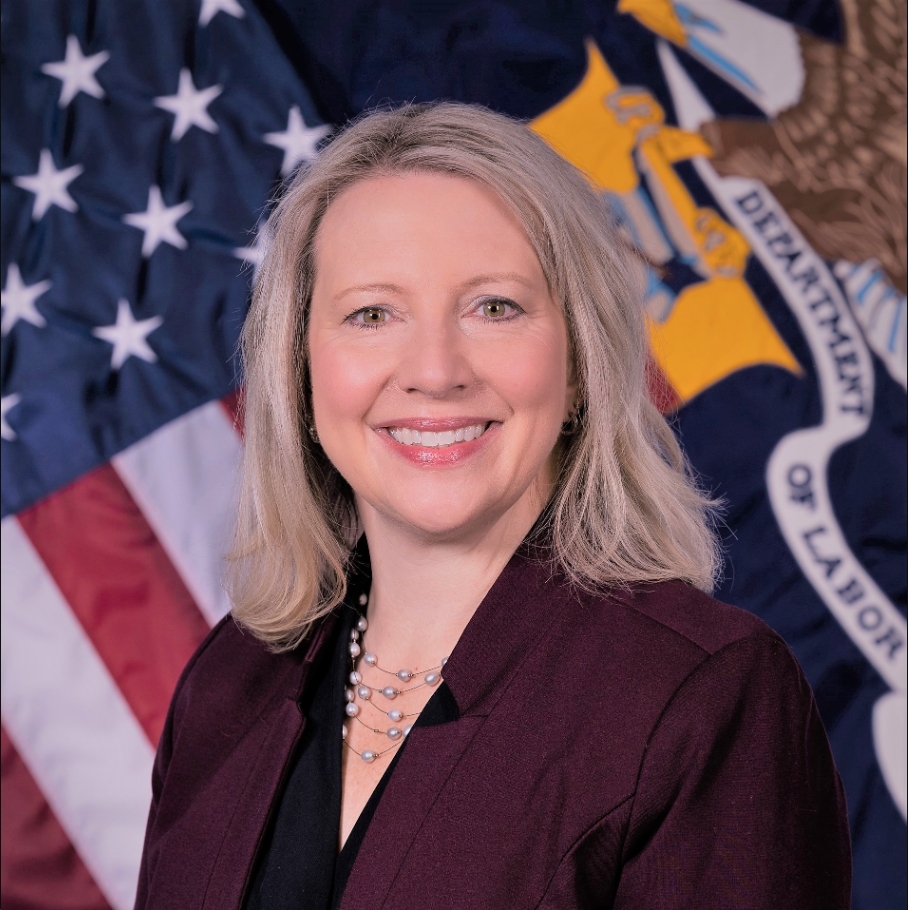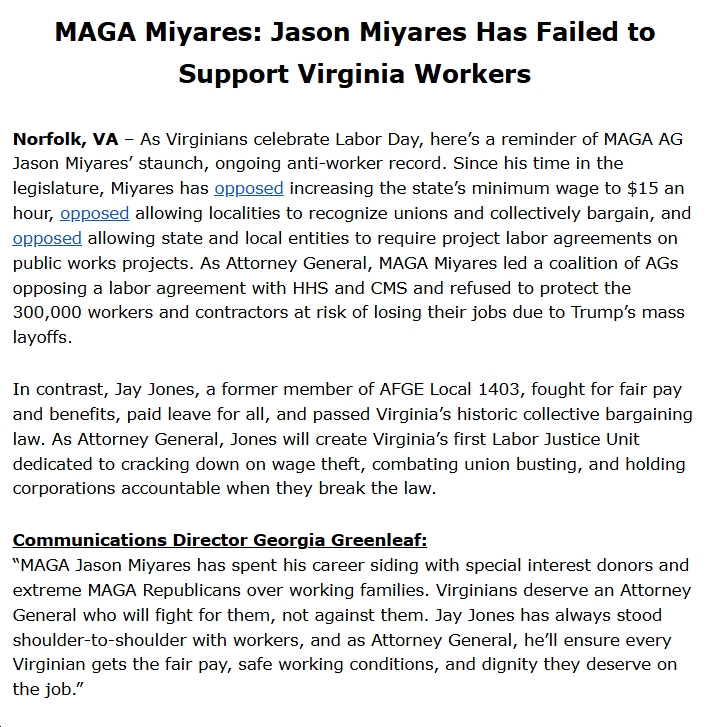| RICHMOND, Va. — By a vote of 9-6, the Virginia Senate Commerce and Labor Committee last night advanced SB 917, Senate Majority Leader Scott Surovell’s bill that would give public service workers across the commonwealth – including teachers, firefighters, home care workers, and employees of public universities – the freedom to come together to bargain collectively for a contract. Virginia House Democratic Caucus Chair Kathy Tran has introduced the companion bill, HB 2764, in the House. Virginia’s blanket ban on public sector collective bargaining was partially lifted in 2020, which has empowered tens of thousands of public service workers in localities such as Richmond, Alexandria, Fairfax and Loudoun County to collectively bargain. SB 917 and HB 2764 would give state workers and public sector workers in every locality the freedom to come together to negotiate a contract. The legislation also sets up critical state infrastructure needed to support local governments in this process. A poll from Christopher Newport University’s Wason Center found that 68 percent of voters support public sector collective bargaining rights. “Any worker can tell you what they need to do their job better, and collective bargaining gives them the vehicle to do that. If you look at Fairfax where I represent, the firefighters were able to negotiate a contract that guaranteed fair pay, training support, flexibility after pregnancy, and some other key provisions that are really important for first responders,” said Senate Majority Leader Scott Surovell. “It should be up to the workers, regardless of their zip code, regardless of the politics of their jurisdiction, to be able to have these exact same rights that those in the jurisdictions that have chosen to participate have, and that’s why we put this bill in.” “Virginia’s economy is powered by our workers, and we build a family-first economy when our workers have a seat at the table,” said House Democratic Caucus Chair Kathy Tran. “Our public sector workers are extremely dedicated to providing excellent service to our commonwealth. Teachers, home care workers, firefighters, they work really hard to make sure our kids are educated, that our families are cared for, that our communities are safe. And they all deserve the right to collectively bargain and have a voice in strengthening their workplaces.” Home care worker Jeanne Robinson said, “Caseworkers, nurses, firefighters, care workers and other health workers deserve the right to come together to negotiate a fair contract no matter what zip code they live in. The bill would help ensure people aren’t left behind.” “We love our jobs and we don’t want to leave them. But we need to secure basic workplace protections if we’re going to be effective,” said Harry Szabo, who teaches at Virginia Commonwealth University. “Hungry people can’t teach well. People who are afraid of losing their housing or their jobs aren’t going to be as reliable for our students as people who know that their jobs are secure. Collective bargaining for higher education will allow us to focus on what we came here to do: making a bright future for our students.” “It truly benefits our students when teachers and staff are taken care of, and it also benefits our communities,” said Sharon Gilbert, Administrative Office Associate at Richmond’s William Fox Elementary School. “I am calling for the General Assembly to pass the collecting bargaining bills, Senate Bill 917 and House Bill 2764. Let’s make our workplaces healthier, more productive and more valuable.” | 
![[UPDATED: VA Senate Dems Pass $15/Hour Minimum Wage Bill] VA House Democrats Pass Top Priority, Paid Sick Leave](https://bluevirginia.us/wp-content/uploads/2026/02/housedemspaidsick.jpg)















